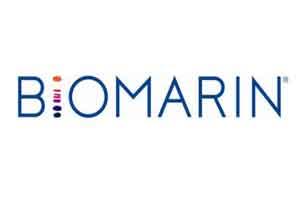- Home
- Medical news & Guidelines
- Anesthesiology
- Cardiology and CTVS
- Critical Care
- Dentistry
- Dermatology
- Diabetes and Endocrinology
- ENT
- Gastroenterology
- Medicine
- Nephrology
- Neurology
- Obstretics-Gynaecology
- Oncology
- Ophthalmology
- Orthopaedics
- Pediatrics-Neonatology
- Psychiatry
- Pulmonology
- Radiology
- Surgery
- Urology
- Laboratory Medicine
- Diet
- Nursing
- Paramedical
- Physiotherapy
- Health news
- Fact Check
- Bone Health Fact Check
- Brain Health Fact Check
- Cancer Related Fact Check
- Child Care Fact Check
- Dental and oral health fact check
- Diabetes and metabolic health fact check
- Diet and Nutrition Fact Check
- Eye and ENT Care Fact Check
- Fitness fact check
- Gut health fact check
- Heart health fact check
- Kidney health fact check
- Medical education fact check
- Men's health fact check
- Respiratory fact check
- Skin and hair care fact check
- Vaccine and Immunization fact check
- Women's health fact check
- AYUSH
- State News
- Andaman and Nicobar Islands
- Andhra Pradesh
- Arunachal Pradesh
- Assam
- Bihar
- Chandigarh
- Chattisgarh
- Dadra and Nagar Haveli
- Daman and Diu
- Delhi
- Goa
- Gujarat
- Haryana
- Himachal Pradesh
- Jammu & Kashmir
- Jharkhand
- Karnataka
- Kerala
- Ladakh
- Lakshadweep
- Madhya Pradesh
- Maharashtra
- Manipur
- Meghalaya
- Mizoram
- Nagaland
- Odisha
- Puducherry
- Punjab
- Rajasthan
- Sikkim
- Tamil Nadu
- Telangana
- Tripura
- Uttar Pradesh
- Uttrakhand
- West Bengal
- Medical Education
- Industry
FDA rejects BioMarin's muscle wasting drug; Sarepta drug in focus

The U.S. Food and Drug Administration rejected BioMarin Pharmaceutical Inc's drug to treat a rare muscle-wasting disorder, shifting investor focus to Sarepta Therapeutics Inc's rival drug in development.
The rejection caps months of uncertainty surrounding the drug, Kyndrisa, which was billed to be the first treatment in the United States for Duchenne muscular dystrophy (DMD).
DMD is a progressive, degenerative genetic disorder that hampers muscle movement and affects one in 3,600 newborn boys. Most patients die by the age of 30. DMD has no cure.
A panel of independent advisers to the FDA had in November indicated that Kyndrisa's effectiveness in trials was not enough to warrant approval. Sarepta's drug, eteplirsen, is up for review next week.
WBB Securities analyst Steve Brozak said Kyndrisa's rejection effectively crowned Sarepta the U.S. DMD winner and that pressure to approve a treatment would mount.
Analysts said BioMarin will likely need another late-stage study for Kyndrisa in the United States. Kyndrisa is also under review in Europe.
Sarepta's eteplirsen, like BioMarin's Kyndrisa, skips a faulty section of the gene to produce dystrophin, the lack of which is believed to cause DMD.
Both drugs target a particular subset of DMD patients, which translates into an addressable population of about 1,800 boys in the United States and about 5,000 outside, according to Wedbush Securities analyst Heather Behanna.
The U.S. rejection, however, is not end of the road for Kyndrisa. BioMarin expects to hear back from the European regulatory advisory committee in April or May, with a final decision in the third quarter.
While a U.S. approval would have given BioMarin first-mover advantage in the market, a European approval is perhaps more significant as the drug will target a larger patient population.
Evercore ISI's Mark Schoenebaum expects BioMarin make its next move only after the FDA's decision on Sarepta, and European regulators' decision on Kyndrisa.
BioMarin said on Thursday it would work with the FDA to determine its next step.
PTC Therapeutics Inc's DMD drug, Translarna, won conditional European approval in 2014, to treat a different subset of patients.
Last year, PTC said it had enough data to submit a U.S. marketing application, despite the drug failing a U.S. late-stage study.
The rejection caps months of uncertainty surrounding the drug, Kyndrisa, which was billed to be the first treatment in the United States for Duchenne muscular dystrophy (DMD).
DMD is a progressive, degenerative genetic disorder that hampers muscle movement and affects one in 3,600 newborn boys. Most patients die by the age of 30. DMD has no cure.
A panel of independent advisers to the FDA had in November indicated that Kyndrisa's effectiveness in trials was not enough to warrant approval. Sarepta's drug, eteplirsen, is up for review next week.
WBB Securities analyst Steve Brozak said Kyndrisa's rejection effectively crowned Sarepta the U.S. DMD winner and that pressure to approve a treatment would mount.
Analysts said BioMarin will likely need another late-stage study for Kyndrisa in the United States. Kyndrisa is also under review in Europe.
Sarepta's eteplirsen, like BioMarin's Kyndrisa, skips a faulty section of the gene to produce dystrophin, the lack of which is believed to cause DMD.
Both drugs target a particular subset of DMD patients, which translates into an addressable population of about 1,800 boys in the United States and about 5,000 outside, according to Wedbush Securities analyst Heather Behanna.
The U.S. rejection, however, is not end of the road for Kyndrisa. BioMarin expects to hear back from the European regulatory advisory committee in April or May, with a final decision in the third quarter.
While a U.S. approval would have given BioMarin first-mover advantage in the market, a European approval is perhaps more significant as the drug will target a larger patient population.
Evercore ISI's Mark Schoenebaum expects BioMarin make its next move only after the FDA's decision on Sarepta, and European regulators' decision on Kyndrisa.
BioMarin said on Thursday it would work with the FDA to determine its next step.
PTC Therapeutics Inc's DMD drug, Translarna, won conditional European approval in 2014, to treat a different subset of patients.
Last year, PTC said it had enough data to submit a U.S. marketing application, despite the drug failing a U.S. late-stage study.
Next Story


